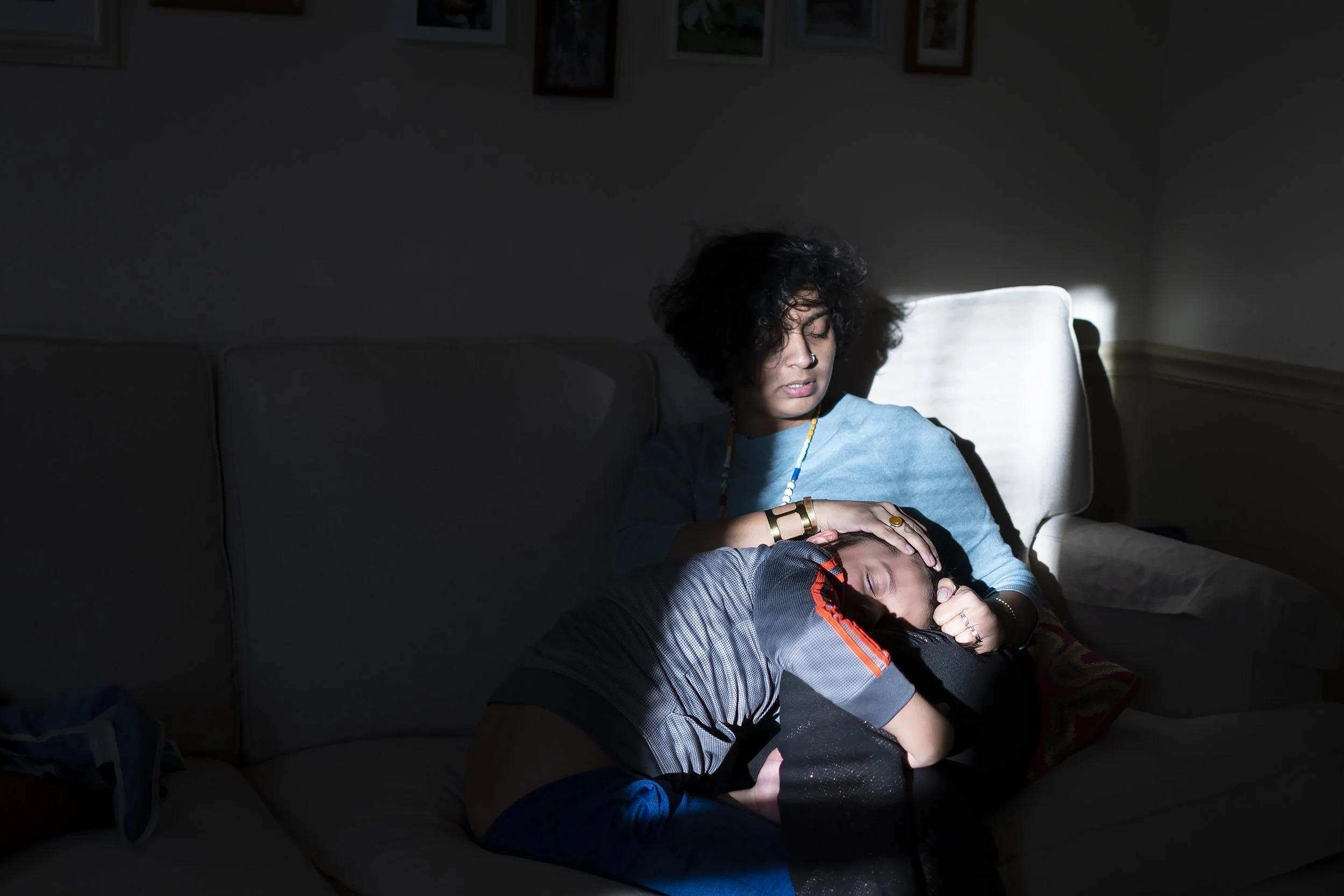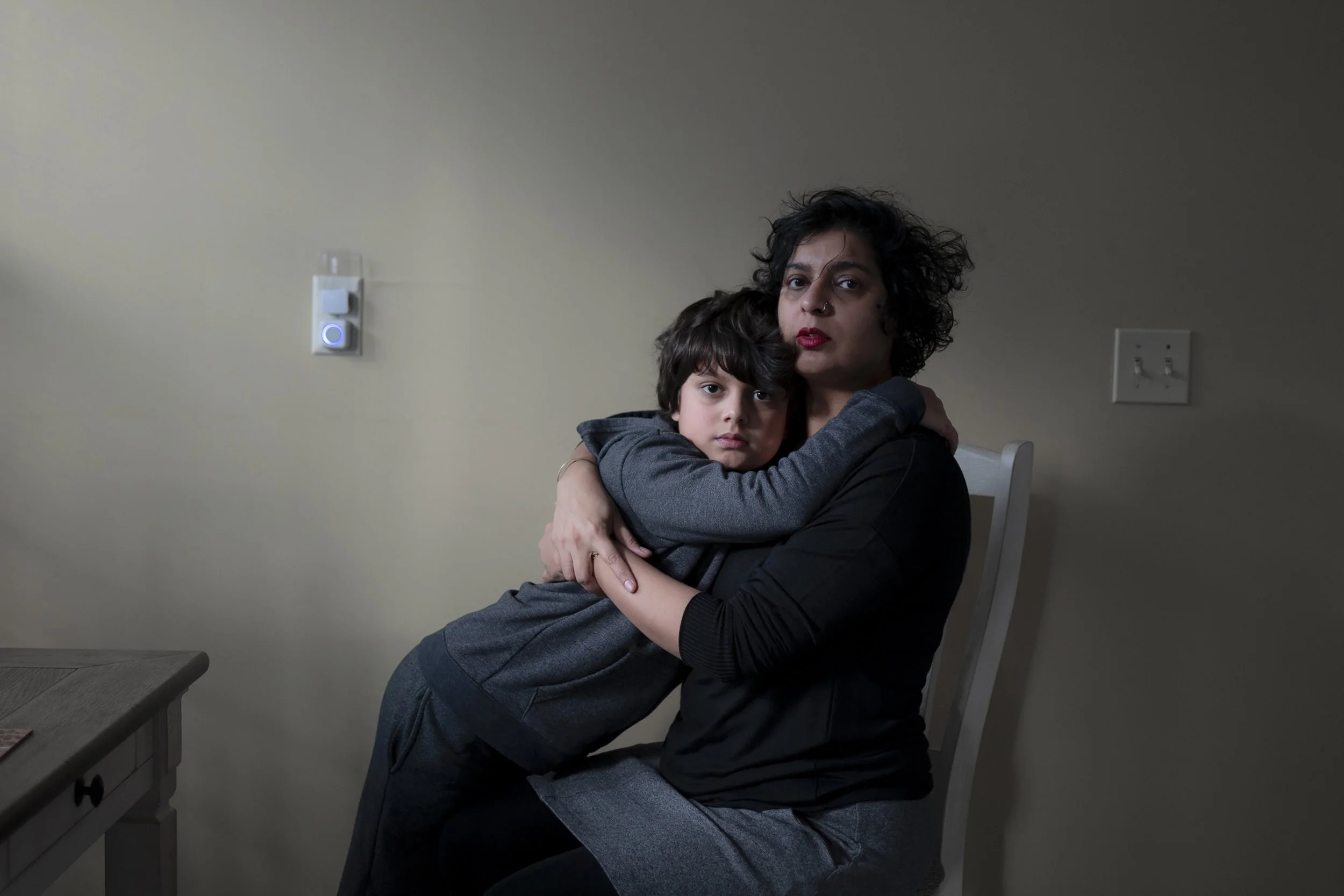Lali Khalid Challenges Who Gets to Represent Whom
How the Chicago-based Photographer’s Counter-Archive Questions Who Sets the Narrative
© Lali Khalid, Untitled
When Lali Khalid tossed her dupatta into the air for a shoot, she was approached by Americans who commented on her work, thinking that she was making images in rebellion against what they believed to be her oppression as a Muslim woman. But she was also fighting against “the oppressed version of me that exists in her head.”
The Politics of Representation
© Lali Khalid, Of Immediate Happiness
At Phoenix’s COMO Art Space, Khalid began her Artist Lecture on the topic of representation. Though she grew up in Pakistan, the art she was surrounded by showed Muslim women through the Western gaze, drenching them in orientalism. They were shown as fully veiled models of oppression, and naked, mischievous examples of the exotic. Paradoxically, both depictions were emblematic of the Western view of the “barbaric” East. Women were fetishized, and in need of saving.
These representations reinforce stereotypes and social hierarchies that followed Khalid to the West when she came to the United States for art school. Feeling uninspired by the New York environment, she eventually turned the camera on herself and began making what she referred to as a “counter-archive.”
Her projects challenge the myopic narrative of Muslim women and the power dynamics they reinforce. Her life as a Muslim woman, an immigrant from Pakistan, and a mother handling her own domestic triumphs and challenges inherently contradicts the dominant narrative in post-9/11 America. Capturing this becomes an act of rebellion–not against the oppression in traditional Muslim culture, but in the image of oppression she has come to represent in the minds of those around her.
Who are the ones who represent the others? Who gets to decide? The development of Khalid’s counter-archive attempts to dissolve these questions by widening the lens of representation. She comments in passing how Frederick Douglass understood the democratizing power of photography near the very birth of the art form, and she shares the proof of that claim.
A Struggle of Belonging
Her project, First Light, the Skylark Sing, expands her work to share the lives of other people who have immigrated to the United States. Though many have left their homes to escape oppression, violence, poverty, and the like, “it is a rough verdict to cut off your roots and start life in a new place.” As one subject describes in an audio recording, there is “a struggle of belonging.” The challenge is exacerbated by the stereotypes and discrimination they face in a new land that promised them freedom. Khalid confesses to moving to the United States chasing freedom, and actually lost it. Having lived in the United States for many years now, she now feels like a stranger when she goes back home, not really feeling at home anywhere.
There is vulnerability in sharing yourself, a vulnerability Khalid contended with for some of her career. She admits that at the beginning, she was always turned away from the camera, not wanting to give too much. In reflecting on her oeuvre, she can see the shyness disappear. She puts her life in full view, sharing the relationship between her and her son, the turmoil around the legal systems that try to keep them apart, and the ways they bond through collaborating on photos together.
© Lali Khalid, Untitled
But it’s not often people feel as empowered as Khalid. She notes how one of the immigrants she met in a burger joint outside of New York City hesitated in participating in her project. He didn’t want to put himself out there, for fear of retaliation, despite living in the same place for several years. When will the fear subside? For many immigrants, the “struggle for belonging” doesn’t end.
But Khalid’s counter-archive at least offers them a place to be unabashedly themselves, on their terms, if they so choose. Here, they can belong.









